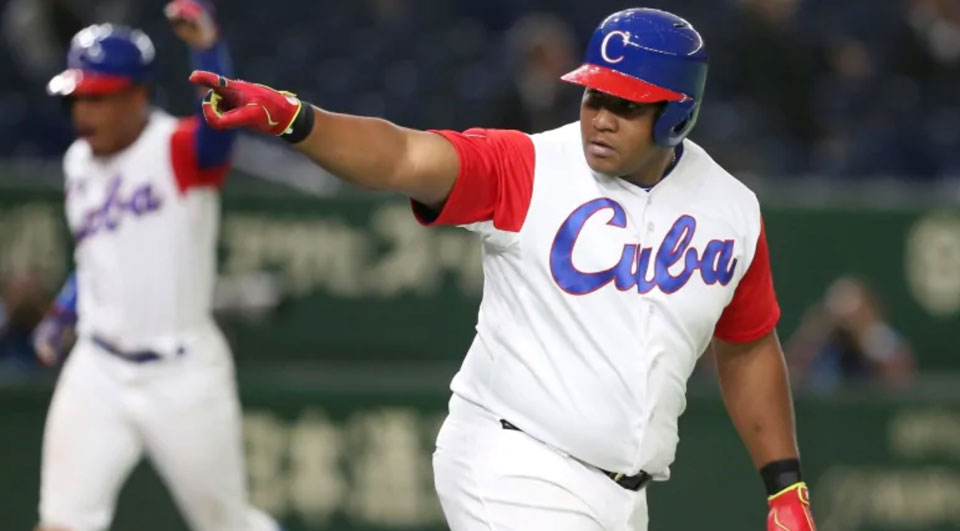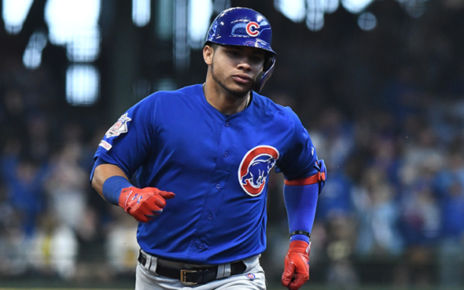A consistent point I’ve encountered from baseball historians is that the decline of Cuba as a baseball powerhouse started in or around 1962. There is a clear reason for this time frame, on February 7, 1962, the United States enacted its full embargo against the island country of Cuba. By barring the export of any goods as well as the free movements of Cuban citizens to and from the country it essentially closed off Major League Baseball and affiliated baseball as an easy path in the baseball progression of Cuban ballplayers.
That’s not to say that Cuba all of a sudden stopped being a powerhouse or a dominating international presence in 1962. Nor does the above mean that Cuban ballplayers didn’t find a way to make it to the ranks of affiliated ball and MLB. They certainly did just as it’s pretty well accepted that on the international scene Cuba remained an elite team, if not the elite team, until the last decade. The narrative of the decline of Cuban baseball exists for two very specific reasons and persists because of one key omission.
The first reason for the decline narrative’s success is that the United States, and by extension MLB and affiliated ball, control the baseball world. It has been in their best interest to not only damage Cuba but to perpetuate the idea that Cuba had fallen from grace of their own accord. This point leads directly into the second reason that the decline narrative has been able to take root and remain; it disavows the role that the embargo has played in affecting the development of young Cuban ballplayers. There’s no denying that the overall skill level of Cuban ballplayers has remained relatively neutral while the rest of the world has caught up with them. I would argue that this is not due to any actual decline, but rather due to stagnation and atrophy brought about due to an embargo that limits the ability of young Cuban ballplayers to face peers off the islands and as a natural extension their ability to improve as ballplayers.
However, more than either of those points what the decline narrative loses sight of is that at every level of professional baseball the world over Cuban ballplayers remain a formidable presence. This is true in the MLB and Minor League Baseball ranks. It’s also true at the highest levels of unaffiliated baseball. Japan’s Nippon Professional Baseball, Liga Mexicana del Pacífico, Liga de Béisbol Profesional de la República Dominicana, Latin America’s Serie del Caribe, and more. Every single top unaffiliated league has a heavy and commanding Cuban presence. This doesn’t take into account where Cuba’s presence remains the largest, the lower-level unaffiliated leagues.
The number of Cubans participating in lower-level unaffiliated leagues throughout Europe and Latin America isn’t that large. Massive numbers aren’t needed for what Cubans in the Spanish Baseball League, France’s Division 1, Campionato Italiano di Baseball Serie A, E;l Salvador’s Liga Nacional de Béisbol, and more are doing. For the past decade, Cuban ballplayers have been traveling to these fledgling baseball countries and helping to craft the framework of their professional leagues as well as their international teams. This has largely taken place in countries, leagues, and competitions that MLB fans, historians, and pundits do not recognize or care to follow. Thus, the major contributions of Cubans to these leagues have largely gone unnoticed outside of Cuba and the countries they compete in year after year.
No, there has not been a decline of Cuba as a baseball powerhouse. Their method of shaping the game the world over has simply changed. When the United States made it harder for Cuban ballplayers to make it to MLB shores other avenues were explored. There are now entire leagues and international teams that owe much of their success and progress to both the play and input of Cuban ballplayers. Just because they don’t have as much of a presence in MLB these days does not make what Cuban ballplayers are doing to shape the international game any less impressive. The embargo will continue to negatively affect Cuba, but don’t let it and the false narrative of Cuban baseball’s decline spread by the United States, MLB, and those who would benefit from that narrative take away from the much-needed work being done by talented Cuban ballplayers in young baseball countries.
Lead photo courtesy of Unknown – Unknown




